A Political Primer
This primer is intended for those who are deeply concerned about the ecological crisis and who want to understand the political obstacles to fundamental change. The document explains how a capitalist society is politically structured. Among the topics discussed are political power, the state, government, and democracy. I also address the political underpinnings of progressivism and modern conservatism, and conclude by identifying the key strategic implications of the ideas presented.
A primer such as this is necessary because the world of deep politics - as opposed to that of electoral politics - is extremely difficult to penetrate. This is true mainly because those in power actively obscure the facts about their social dominance. For the ecologically concerned the situation is even worse because we frequently project our morality onto the rest of society. We thereby ignore the possibility that a well-organized minority could manipulate the majority for its narrow purposes. For these and other reasons, even the most intelligent and educated among us often stumble badly when we enter the political domain.
Because the essence of real politics is power, I begin with this nettlesome topic.
1. The Principles of Political Power
Reliable information about political power is difficult to find because, as noted above, the powerful routinely suppress the facts about their dominant role. This concealment is a core function of the capitalist media, and an important feature of the socially-oriented academic disciplines. I have nevertheless found four sources that offer penetrating insights on this subject. These are Machiavelli's The Prince (1514), Edward Bernays' Propaganda (1928), George Orwell's Ninety-Eighty Four (1949), and - likely to the surprise of many - the tenets of traditional conservatism. I will briefly discuss each of these in turn and then present the political principles I have derived from them.
Niccolo Machiavelli (1469-1527) was a diplomat and writer in Renaissance Italy. He had two passions: to achieve stability for his beloved city-state of Florence and to regain the national dignity that had been lost through invasions by Spain and France. He was forced from public life by the shifting political sands and wrote The Prince in his retirement. Although the book reflects his experiences in Italy during this turbulent period, it deals cogently with political issues that have broad and timeless relevance.
The most important attribute of The Prince is that it avoids all sentiment about power. The topic is presented as historical fact, as a record of how rulers actually behave: "... since my intention is to say something that will prove of practical use to the inquirer, I have thought it proper to represent things as they are in real truth, rather than as they are imagined." The author delivered on this promise, which means that the term "Machiavellian", in the sense of exceptional deviousness and deception, is misleading. Machiavelli did not discuss actions that are in any way unusual, but rather those that are widely employed among political rulers. His signal accomplishment was to remove the shroud that normally envelops the application of power, thereby revealing what his long and sometimes bitter experience had taught him.
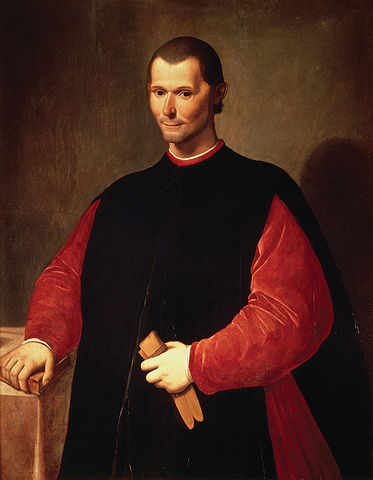
Machiavelli addressed two major themes in The Prince: the nature of the populace, and how a ruler should behave so as to maintain power and achieve political stability. Because he regarded the populace as fickle in their support of the ruler, he counseled that force be applied when this support faltered. In modern language, this refers to the core political concepts of legitimacy (support) and coercion (force).
Machiavelli understood that most people don't arrive at their political views independently, but instead "... follow the tracks made by others and proceed in their affairs by imitation ..." He also noted that the populace is easily deceived, readily swayed, and impressed by appearances and results. After describing how a member of the powerful Borgia family disposed of a rival by having his body cut in two and placed in a public square, he commented, "The brutality of this spectacle kept the people of Romagna for a long time appeased and stupefied."
Edward Bernays (1891-1995) was born in Vienna, but his family soon moved to New York. During World War I he worked for the Committee on Public Information, which was tasked with selling the war effort to the American people. This initiative was so successful that he applied his newfound knowledge to "public relations" - the shaping of the popular mind for commercial and political purposes.
The central message of Propaganda is that the masses are "quite innocent of original thought" and must therefore be manipulated by their natural superiors, both for their own benefit and to ensure national progress. Bernays referred to these superiors as the "invisible government", which constitutes "the true ruling power of our country". Although his emphasis was on the populace at large, he insisted that even highly sophisticated people are subject to mass persuasion.
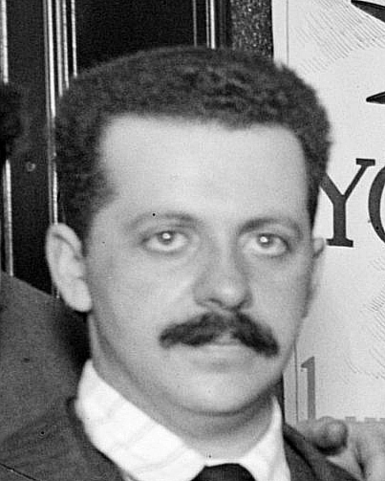
Like Machiavelli, Bernays emphasized that, with few exceptions, power requires the voluntary support of the populace - that is, legitimacy. However, those in control are keenly aware of this fact, and "... find in propaganda a tool which is increasingly [effective] in gaining that approval". Legitimacy, in other words, is actively cultivated by the dominant group. This is the meaning of the phrase "manufacture of consent", which was coined by Bernays' intellectual hero, Walter Lippmann, in his book Public Opinion (1922). For those in power, the populace is not an autonomous group that must be respectfully heeded, but a pliable mass that must be carefully molded.
Bernays primarily targeted groups rather than individuals. As he noted in Propaganda, "… the group mind does not think in the strict sense of the word. In place of thoughts it has impulses, habits, and emotions. In making up its mind, its first impulse is usually to follow the example of a trusted leader. This is one of the most firmly established principles of mass psychology." For this reason, Bernays aimed his messages at church officials, school administrators, business moguls, and the like. He knew that, if he could persuade these social leaders to endorse a product or support a position, the people who granted them authority would automatically follow. His astonishing success strongly suggests that he was right.
George Orwell (1903-1950) is the pen name of the English writer Eric Blair. He was a strong supporter of the working class and social justice, and therefore volunteered to fight with the republicans against fascism in the Spanish Civil War (1936-1939).
Orwell's central message in Nineteen Eighty-Four is that political power is maintained by controlling the thoughts of those who might pose a political threat. This category includes the educated and members of the ruling Party, but excludes the "proles" - the mass of the working class. He dismissed the proles as a threat to power because, "Heavy physical work, the care of home and children, petty quarrels with neighbors, films, football, beer, and above all, gambling, filled up the horizon of their minds. To keep them in control was not difficult."
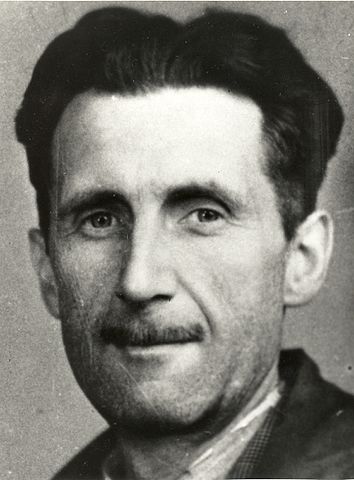
Orwell's discussion of thought control is replete with razor-sharp insights. His central concept is "thoughtcrime", which refers to any independent idea - that is, any idea that did not originate with the ruling Party. Such independence is not only discouraged through pervasive surveillance, it is made increasingly difficult by Newspeak. This is the society's language, which is continuously modified to narrow the range of possible thought: "In the end we shall make thoughtcrime literally impossible, because there will be no words in which to express it."
Thoughtcrime is also prevented by a central feature of the manipulated mind: "crimestop". This is defined as, "... the faculty of stopping short, as though by instinct, at the threshold of any dangerous thought. It includes the power of not grasping analogies, of failing to perceive logical errors, of misunderstanding the simplest arguments if they are inimical to [the ruling ideology], and of being bored or repelled by any train of thought which is capable of leading in a heretical direction. Crimestop, in short, means protective stupidity."
Orwell describes many other aspects of thought control, including the suppression of science because it encourages "the empirical method of thought", the "doublethink" employed by Party members to meld rationality and doctrine, the suppression of common sense and the evidence of our eyes and ears, and - most shockingly - the insistence that two plus two equals five if the Party says so. There is no better political lesson than reading or re-reading this extraordinary book, particularly if one keeps in mind Edward Snowden's NSA revelations and the events of 9/11.
Traditional conservatism is relevant here because it reflects the interests and ideas of the feudal landowners who dominated European societies prior to the advent of capitalism. Because the landowners saw capitalism as a mortal threat, they were brutally candid about the political realities behind this new mode of economic organization. Their perspective is sympathetically presented by Russell Kirk in The Conservative Mind.
According to Kirk, a fundamental conservative criticism of capitalism is the latter's pretense that society can be democratic, in the sense that the populace can effectively hold power. By contrast, traditional conservatives insist that people vary widely in their talents and temperaments, that every society has a "natural aristocracy", and that only the qualified few are fit to rule. Significantly, they claim that democracy is a fig leaf for minority rule, and that illusions on this score are potentially disastrous: "Abstract sentimentality ends in real brutality."
Traditional conservatives also understand the role of capitalist propaganda. The following passage by Kirk is strikingly similar to Bernays: "What is called public opinion, instead of being the united opinion of the whole community, is usually nothing more than the opinion or voice of the strongest interest... the press, instead of being the organ of the whole, is usually but the organ of these ... interests ... It is used by them as the means of controlling public opinion, and of so molding it as to promote their peculiar interest."
Obviously, modern conservatism has little in common with this anti-capitalist perspective. As explained further below, today's version is an opportunistic mix of traditional views and the fervently pro-capitalist ideas of classical liberalism.
Based primarily on the above sources, I conclude that the following are the key principles about political power.
1. Every complex society has a ruling class
The stubborn realities of human nature, the practical challenges of organizing a complex society, and the need for a well-defined social direction make a ruling class inevitable. Anarchism is impossible, and popular sovereignty is illusory.
2. To the degree possible, power is concealed
The simplest way to avoid challenges to power is to deny that it exists. This is achieved mainly by promoting the myth of popular sovereignty, but also by branding those who expose political reality as thought criminals and by ridiculing their ideas as "conspiracy theories".
3. Power is about the reality of social control
A ruling class maintains its power not through sentiments or ideals, but by soberly appraising the political landscape and acting effectively to assert control. A ruling class will implement whatever measures are conducive to this end, no matter how ruthless these may be.
4. Stable power requires legitimacy
Without the consent of the ruled, power is costly and unstable. Autonomy that has been surrendered under duress will be recaptured at the earliest opportunity. Achieving legitimacy is thus a priority when power is first seized, and retaining legitimacy is an on-going requirement for the ruling class.
5. Legitimacy is manufactured
A ruling class consciously constructs legitimacy, in part by meeting popular demands and in part by manipulating the populace through propaganda, deception, fear, and division (racism, sexism, etc.). Whatever the chosen mechanisms, legitimacy is far too important to be left to the autonomous choices of the ruled.
6. Coercion is used when legitimacy fails
To the degree that low-cost legitimacy fails, high-cost coercion is used instead. Coercion either compels consent, or it neutralizes the dissenters by removing them, physically or psychologically, from the political arena.
7. The ruled are kept fearful and dependent
Coercion, as well as the manipulations associated with legitimacy, can lead to resistance and thus social instability. This is minimized by instilling fear into the populace through factitious threats, thereby short-circuiting rational thought and making the ruled psychologically dependent on the rulers for safety and protection.
8. The talented and dangerous are co-opted
The talented among the ruled are given positions of prestige and material reward, thus neutralizing them politically and making them useful to the ruling class. The politically dangerous are either lured through similar inducements or coaxed into political channels that pose little or no threat to power.
9. The ruled are carefully monitored
Through surveillance of the ruled, including the infiltration of threatening groups, the ruling class obtains essential information to bolster its social control. Infiltration is also used to provoke the ruled into adventurist actions, thereby isolating the disaffected and allowing them to be easily suppressed.
10. Divisions among the rulers are minimized
Because a ruling class is rarely homogeneous, internal struggles can arise that could undermine its power. To minimize such divisions, the rulers employ various methods of consultation and compromise to resolve disputes before they become unmanageable and self-destructive.
These principles are general in that they hold for any complex society. In the next section they are applied to the specific structure of power in a capitalist society. I will then present the official story about popular sovereignty, and follow this with the modifications of this story by progressivism. As we will see, both the official and modified stories conceal fundamental political realities, thereby preventing effective action on the ecological crisis.
2. The Structure of Capitalist Power
Every capitalist society has a ruling class. This is consistent with the first principle above and evident from the historical facts. The early European manufacturers, based on their economic superiority, gradually seized political power from the landowners, eventually becoming the rulers in their respective countries. When these countries broadened their economic dominance through colonialism, capitalist societies and their ruling classes appeared all over the globe. The structure of power in such a society is depicted the figure below.
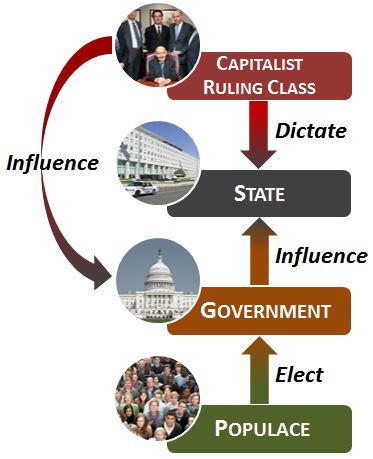
POLITICAL REALITY: The capitalist class has assumed political power through a lengthy historical process and is now society's ruling class. It asserts social control through the state, which also regulates society's functioning.
The populace is represented by an elected government, which allows them to express their views and concerns. Government also permits the state to selectively meet popular demands, and - critically - it allows the capitalist class to claim that the populace holds political power.
Based on its economic and social dominance, the capitalist class heavily influences government, thereby undermining the latter's independence.
Starting at the top, the capitalist ruling class holds political power and thus asserts social control. This primarily means that the class is in a position to assert its dominance over the populace and any groups that might threaten its control. It also implies that society has over the centuries been structured to reflect the capitalist mode of economic organization, and that the ideas in people's minds reflect this structure. These ideas collectively constitute the capitalist worldview.
Because the capitalist class owns the bulk of society's productive assets, its economic roles buttress its political power. Most significantly, it regulates production and, through advertising, much of consumption. These factors allow the capitalists to meet popular demands, both by providing the outputs that people desire and by shaping these desires to match the most profitable outputs. Production control also gives this class a stranglehold over people’s livelihoods. Those who stray from acceptable behavior will lose their jobs, and those who stray persistently will be blacklisted, making a new job almost impossible to find.
The capitalist class asserts control not directly, but through the second element in the diagram - the state. This refers to the organizational and administrative structures that regulate a society's functioning. The state carries out numerous essential tasks relating to commerce, immigration, the environment, etc. as well as those associated with coercion - the legal system, police, military, intelligence, and surveillance. The military is of particular significance because it ultimately determines who holds political power. Although many of the state's activities are generic in that they would be necessary in any complex society, in a capitalist society it is emphatically a capitalist state. That is, it follows the dictates of the capitalist class and ultimately serves its purposes and worldview.
The state, like the capitalist class, is for most people largely invisible. The structure and personnel of state institutions are typically known, and there is some accountability through the reports they issue and the public pronouncements they make. In addition, "freedom of information" statutes in some jurisdictions allow determined investigators to delve into some of the state's darker recesses. Nevertheless, as with the ruling capitalists, much state activity is carried out in secret and is never publicly divulged.
The third element of capitalist power is government. Because of its high visibility and crucial roles in social control, this institution deserves careful scrutiny. It performs three key functions in maintaining capitalist power.
First, the process of electing a government allows to populace to express its demands, thereby releasing political tensions that could become dangerous if they were bottled up. Elections also allow the populace to express its shifting moods and attitudes: from a right-leaning government to a left-leaning government, or from a white man to a black man to a woman as president or prime minister. So long as threatening ideas and initiatives are kept in check, such variety keeps the populace politically disoriented and is helpful in maintaining capitalist rule.
Second, popular representation allows the capitalist class to understand the populace's demands so that these can be selectively met. As indicated in the fifth principle above, legitimacy depends in part on satisfying people's consumption desires and other wants. This is the preferred method of generating support because it avoids the resistance potentially associated with manipulation and coercion. The state is influenced by government insofar as this helps maintain the existing power structure.
Third and most importantly, popular representation allows the capitalist class to credibly portray government as the locus of popular sovereignty. If government is perceived as the seat of power, then the actual power of the capitalist class and its state are removed from view. As noted in the second principle above, this contrived invisibility is the simplest way to avoid challenges to those who in reality dominate the political realm.
The main conceptual problem regarding government is distinguishing it from the state. A remarkable number of analysts either misplace the dividing line between the two or ignore it altogether. Note the differences: A government is elected, relatively impermanent, and typically staffed by amateurs in public management. It makes laws and sets policies. By contrast, the state is unelected, relatively permanent, and staffed by professionals in public management. It executes laws and implements policies. The consistent conflation of government and state is an important aspect of the official story discussed below.
It is important to note that government is a two-edged sword for the ruling class. Although it is necessary for the reasons just cited, it is potentially dangerous. The main concern is that the elected representatives will assert their independence from the rulers, either by launching initiatives that are contrary to the latter's interests or by opposing initiatives that are conducive to these interests. To minimize such problems, the ruling class heavily influences government through extensive lobbying, financial payoffs, promises of lucrative positions, and by infiltrating government itself through the election of ruling-class members or subservient stand-ins.
To summarize, power in a capitalist society is held by the capitalist ruling class, which asserts social control through its economic ownership and the political apparatus of the state. Government is indispensable for maintaining power because it allows the populace to express its demands, the state to selectively satisfy these demands, and the myth of popular sovereignty to be readily disseminated. Because an independent government can compromise capitalist interests, the ruling class uses various methods to minimize the institution's autonomy. It is should also be pointed out that, if these methods fail, a military coup that will likely occur to replace the recalcitrant government with one more amenable to the capitalist rulers.
3. Democracy and the Democratic Illusion
The fact that a capitalist society is dominated by a ruling class does not mean that democracy is meaningless. However, it does mean that nature and limits of democracy must be clearly defined. So: what is it? Concisely stated, it is the political freedom of the ruled. It refers to the various liberties and rights that the ruling class has either granted willingly or been compelled to surrender. Democracy, in other words, is the freedom of thought and action that the ruled have acquired within the ruler-ruled relationship. It is the degree of autonomy, or political breathing space, within the context of social dominance.
Democracy has two dimensions – the institutional and the individual. The institutional dimension refers to the relationships between the populace and the elements of capitalist power. If the populace can elect a government without undue influence from the ruling class, and if the state responds positively to government decisions, then a high degree of institutional democracy exists. The individual dimension refers to personal freedoms such as the rights to free speech, assembly, and peaceful protest, as well as the absence of intrusive surveillance and excessive coercion.
Democracy is important for two reasons. First, it eases the populace's burden as a dominated group by providing them with a means to express their views, concerns, and interests. It is therefore central to the populace's quality of life, something that was clearly demonstrated during the "Arab Spring" demonstrations starting in 2010. Second, democracy allows the populace to push for systemic changes which, in extreme cases, could result in political revolution. This is why Lenin, for example, stated unequivocally that, "Democracy is of enormous importance to the working class in its struggle against the capitalists for its emancipation." (State and Revolution, Chapter V, section 4)
The challenge for those wishing to understand political reality is to value democracy for what it offers while avoiding the trap of interpreting it as power. To repeat, democracy is the freedom of the powerless, not power itself. Of course, the ruling class has a keen interest in disseminating the myth of popular sovereignty, which is why so many among the populace are under the spell of the democratic illusion. The picture presented to the popular mind is the familiar one below.
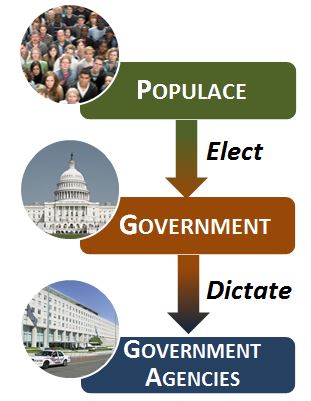
MYTH OF POPULAR SOVEREIGNTY: The populace holds political power and is therefore sovereign. It elects a government to represent its interests, which are conveyed to various government agencies. There is no ruling class, no state, and no undue influence on government by the powerful. This is the full-blown myth of popular sovereignty: the democratic illusion.
Here the populace is at the top of the social heap. There is no ruling capitalist class, and the state has been replaced by "government agencies" (AKA "the civil service" or "the bureaucracy"). Individuals have ample personal freedoms to express their political aims and preferences, and they use these freedoms to autonomously elect a government. The government, in turn, autonomously controls the various government agencies, and through this society as a whole. From this it follows that democracy is synonymous with popular sovereignty and thus political power. This fabricated but deeply implanted story is aptly called the myth of popular sovereignty. Someone subscribes to the democratic illusion to the extent that they embrace this fictitious account.
Let me briefly address the historical reason for the capitalist class's keen interest in maintaining the democratic illusion. In today's world, a populace will in general not allow itself to be passively ruled. Especially since the French Revolution, people have rejected absolute rule and have insisted on playing a meaningful role in social management. The challenge for the capitalist class is to reconcile this popular impulse with its economic logic, which frequently runs counter to popular interests. Its historically evolved solution is to grant democracy to the populace as a sop: relatively minor concessions in the realms of policy and personal liberty that preclude major concessions in the realms of power and privilege. From the ruling-class perspective, therefore, democracy is entirely a social control strategy. Presenting it as a glorious goal - the people's political liberation - is a propaganda technique designed to facilitate this strategy.
4. Progressivism
The progressive movement, because of its energy and activism, is a highly visible player in the struggle against environmental degradation. However, its true potential in this struggle depends on its political posture - that is, where it stands in relation to political reality and the myth of popular sovereignty. And to understand this posture it is necessary to grasp the nature of the movement itself.
Broadly speaking, progressivism is about social progress - the drive towards a fair and prosperous society. In historically specific terms, it is about resistance to the damage caused by capitalism. This resistance expressed itself initially as the fight against social injustice: the mistreatment of workers, the ravages of racism and sexism, etc. Later, when capitalism's devastating impact on the natural world became evident, it additionally expressed itself as environmentalism. In brief, the essence of today's progressivism is resistance to the social injustice and environmental destruction that result from a capitalist economy.
This ethical commitment is rooted in a deep and admirable compassion for humankind and non-human life. It does, however, have a significant flip side: it assumes capitalism's continued existence. Because progressivism was born in opposition to capitalism's abuses, the two have become tightly integrated, and the movement now defines itself almost entirely in the system's terms. For example, progressivism doesn't seek to end the capitalist exploitation of workers, but rather to improve the conditions under which this exploitation takes place. In the environmental domain, it works for reforms that can be achieved within the prevailing order: energy efficiency and renewables, carbon taxes, controls on dangerous substances, and the like.
Progressivism is therefore a mix of two distinct attitudes towards capitalism. On one hand it accepts the system's existence and thus rejects a revolutionary stance. On the other hand it opposes the system's devastating effects on people and nature, and is thus committed to reforms. This two-sided posture is reflected in the movement's political conception of a capitalist society, which is shown in the diagram below.
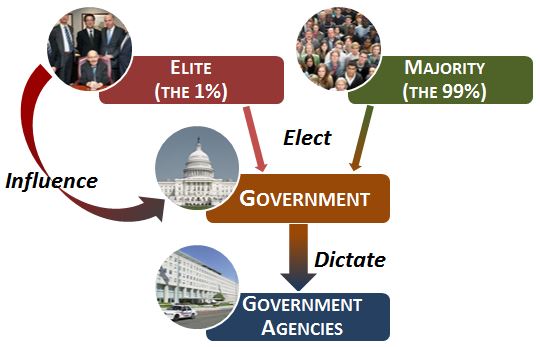
PROGRESSIVE VIEW: Similar to the myth of popular sovereignty, except that the populace is divided into the wealthy elite (the 1%) and the majority (the 99%), with the elite heavily influencing government through its financial resources and dominant social position.
This perspective is an improvement over the standard story because it recognizes that society is economically divided into the rich and the poor. It also acknowledges that the rich - also known as the elite or the 1% - significantly influence government, and that institutional democracy is severely compromised as a result. However, this view accepts the official story that there is no ruling capitalist class and that government-controlled agencies rather than the capitalist state regulate society's functioning. In brief, the progressive perspective is a combination of political reality and the myth of popular sovereignty.
5. Modern Conservatism
Today's conservatism is widely and profoundly misunderstood. The reason for this confusion is that modern conservatism is not a single, coherent political position, but rather a mix of two discrete positions that were artificially combined to undergird capitalist power. As noted in section one, traditional conservatism reflected the ideas and interests of the feudal landowners. Thus it was fiercely opposed to capitalism, and it was genuinely concerned about the fate of the populace under the brutal discipline of the industrial machine. What needs to be explained is how this early, anti-capitalist conservatism was transformed into today's fiercely pro-capitalist version.
In seeking an explanation it is useful to envisage the challenges faced by the early capitalists as they attempted to wrest political power from the landowning class and then to maintain their dominance. Their first challenge was to imbue society with the economic ideas that distinguish capitalism from feudalism: labor freed from medieval restrictions, unfettered trade and enterprise, rapid economic expansion, ruthless increases in productivity and efficiencies, etc. Their second challenge was to gain the support of the populace in order to avoid an intolerable level of social instability. Briefly stated, the early capitalists faced the conundrum of implanting capitalist logic in the economic sphere while achieving legitimacy in the social sphere.
This was not an easy problem to solve. Most people at the time were strongly committed to the security, stability, and communal orientation of feudal life. They could to some degree be lured with the increased consumption that capitalism made possible, but this was largely a future prospect, and it did not fully compensate them for the social and personal losses they endured.
To see how this problem was tackled, recall first that the political position which represented capitalist logic during this period was called liberalism (from the Latin "liber", meaning "free"). To avoid confusion with today's usage, this is now called classical liberalism. Thus, without developing a new political ideology, the early capitalists could choose between two existing positions: traditional conservatism and classical liberalism. Could either of these serve their purposes?
Traditional conservatism was the ideology of the landowning class that the capitalists were trying to supplant, and its economic principles contradicted those of the new system. On the other hand it embodied social principles that resonated deeply with the populace. It was therefore bad for economics, but good for legitimacy. Classical liberalism, on the other hand, embraced capitalism's economic principles but rejected the social ideas that would keep the populace in check. It was therefore good for economics, but bad for legitimacy.
Clearly, neither traditional conservatism nor classical liberalism fully met capitalist needs. However, traditional conservatism came closer because it satisfied that most fundamental of all political requirements - popular support. Given this support, the capitalist class could assume power and gradually instill the economic ideas in the populace. Without it, power was impossible and the ideas would founder, no matter how fervently they were championed by the classical liberals.
This thought process was the basis for modern conservatism. The key idea was to use the term "conservatism" and its social ideas to placate the masses, but to incorporate the ideas of classical liberalism to serve the new economic system. The fact that the resulting combination was conceptually incoherent was only a minor impediment. Once power was attained, intellectuals were hired to weave the mix into a presentable whole. Then propaganda - especially education - was used to ensure that even sophisticated members of society embraced the manufactured story. Today, few people have any idea that the conservatism they know is an artificial construct based not on a distinct political posture, but on the two basic requirements of capitalist power.
6. Strategic Implications
This last section identifies the broad strategic implications of the political ideas presented above. The following, in the order shown, are the most significant:
- The capitalist class is the ruling element in a capitalist society. Resolving the ecological crisis will require fundamental economic changes that can be achieved only through determined and aggressive action by society's rulers. Because the capitalist class has clearly demonstrated its unwillingness to move in this direction, it must be replaced by a sustainable alternative. To achieve this replacement, military intervention will almost certainly be necessary.
- Government is a representative institution that allows the populace to influence the capitalist class and state. It is therefore useful for applying pressure from below in order to implement reforms that can slow environmental destruction. However, government does not have the political capacity to fundamentally transform the economy. Any strategy that relies on governments and their "agencies" for this purpose is thus unworkable.
- Modern conservatism is a composite of three social forces: the ruling class and its allies, the political descendants of traditional conservatism, and the political descendants of classical liberalism. These distinct components and their discrete political backgrounds must be kept firmly in mind when a strategy is being developed.
- Progressivism is a values-based resistance movement. It can be relied on to fight for social, economic, and environmental justice, but not to fundamentally transform or supersede capitalism. Environmentalism is similar, but focuses on sustainability rather than justice.
- The populace is decisively manipulated by the ruling class and its state. To treat them as autonomous political actors is a grave misunderstanding, does not serve their interests, and is an invitation to strategic disaster.
- Many political illusions are conducive to social stability and are relatively harmless in non-crisis situations. However, the politically advanced must shed these myths when an existential threat such as the ecological crisis appears. A sound strategy can be formulated only by the willfully disillusioned.
Frank Rotering
June 2015
Edited: April 2017; August 2019